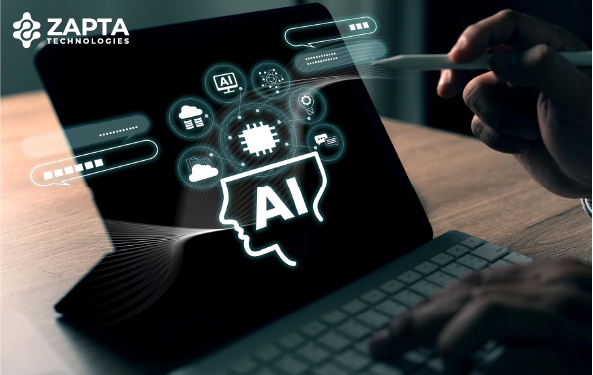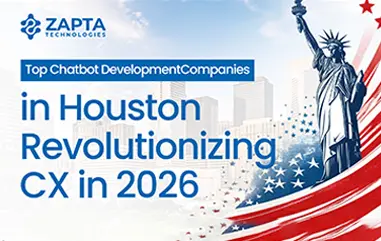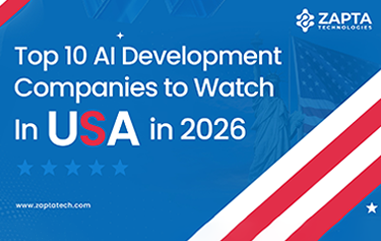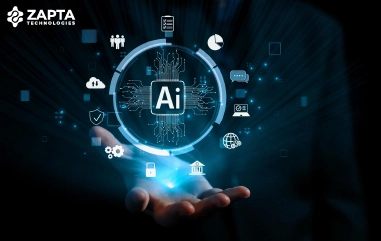With every business, small or large, jumping on the AI bandwagon, it’s only fair to ask, “Does your business actually need custom AI software?” or is this just pressure to keep up?
AI capabilities are growing faster than most teams can keep up with. However, the problem isn’t that your business may fall behind; it’s investing in the wrong solutions. The wrong custom build can drain your budget, delay your timelines, and overcomplicate what should be simple.
How Do I Know If My Business Needs Custom AI Software Or Not?
By the end of this article, you’ll know how to:
Assess your current tech stack and its readiness for AI
Spot the signs that your business does need a custom AI software solution
Avoid the mistakes businesses usually make while exploring custom AI development
But before we begin, let’s reaffirm that you don’t always need custom AI, or just because everyone’s building it. The only time you should build it is when your business case truly demands it to solve a real business problem.
What’s the Difference Between Off-the-Shelf AI and Custom AI?
Let’s start with the basics. An off-the-shelf AI software comes prebuilt with its own specific features designed for general use. You integrate it with your existing software systems, and it lets you use it for what it’s built for, like plugging ChatGPT into an edtech app for automated tutoring.
A custom AI software solution is of a totally different kind. It’s designed and built from scratch, keeping in mind the specific requirements, goals, and business problems you want to solve. It’s built on your data and aligned with the way your business works.
Off-the-shelf AI fits into your system. Custom AI is tailored around it.
Signs Your Business Might Not Need Custom AI Yet
Before we get into building custom AI, let’s clear this up;
There are very real signs that indicate your business might not need it yet. Because building too soon can backfire, costing you time, money, and momentum. Here’s how to tell if you’re better off waiting;
You’re still validating product market fit:
If your product is still in its MVP builder mode, testing the market, evolving features, and introducing AI can add unnecessary complexity. Focus on building a strong foundation and then scale with AI when the time’s right.
Off-the-shelf tools are doing the job:
Sometimes, a well-placed integration or API gives exactly what you need from an AI. If an existing tool can solve your business problem without bottlenecks, there’s no need to reinvent the wheel. Instead, work with an AI team to audit your current systems and identify tools that can automate or optimize workflows.
You don’t have enough quality data:
Custom AI depends heavily on your business data. If your datasets are small, scattered, or messy, you’ll struggle to build anything useful, let alone intelligent. Work on collecting, cleaning, and organizing your data first, and then make it meaningful for your business.
You’re not ready for the investment:
Custom AI isn’t just a one-time build. You’ll need infrastructure, talent, ongoing training, and time. If your business isn’t equipped to support that investment, it’s better to pause and plan intentionally.
AI is not a trend that’ll vanish in a while, but an asset that’ll only escalate further. So, it’s only smart to build something that you can take on further.
3 Signs You Do Need Custom AI Software
Now, if we look deeply, off-the-shelf software or generic tools can come with their limitations. Maybe your workflows are too unique or complex for them. Or your business might demand full devotion from AI. Then, what do you do? You upgrade and build a tailored AI software because it has now become a necessity.
Let’s get a detailed look at this
You need AI that fits your logic:
If your workflows are layered, non-linear, or just too specific for generic tools to handle, custom AI is the way to go. You’re not running a one-size-fits-all business, and your AI should reflect the same spirit. Think about approvals that go through multiple internal checkpoints, or sales systems that work on your own scoring criteria. That logic can’t always be hardcoded into third-party tools, but it can be built into your own AI system.
You’re always hitting tool limitations:
You’ve done the whole “connect API to that platform” dance. Maybe, you’re patching together tools that almost do the job but not quite. Or you aren’t able to find the feature that you want. Custom AI overcomes the issues regarding existing software, such as a lack of flexibility, scalability, or even the data security your business needs. Plus, it's built to directly integrate with your current ecosystem.
You want a long-term competitive edge:
AI isn’t just about solving today’s problem. It’s about building something that gives you an advantage in the long run. Custom AI helps you create internal systems or product features that no competitor can replicate easily because they're built on your data, your processes, and your unique insights. Building a custom AI software that aligns with your business goals should be a strategic move rather than an instantaneous decision. If you need a custom AI and have the resources to build one, it will benefit your business in many ways.
How To Evaluate If You’re Ready For Custom AI?
At this point, it comes down to three key questions. If you can confidently answer yes to most of these, you’re in a good place to move forward.
Is my problem unique enough: If your problem can’t be solved with off-the-shelf tools and you’ve tried them already, it’s a strong sign you need a custom AI.
Do I have the right team or partner: You don’t need a 10-person AI lab. But you do need someone who understands your business logic, your data, and how to build responsibly.
Can I measure success: Whether it’s cost savings, faster workflows, or a smarter [product experience, you need a metric that tells you the AI is working.
What to Do Next If You're Still Unsure?
Still not sure if custom AI is the right move? That’s okay. The key is to take small, smart steps instead of jumping straight into development.
Start with an AI readiness workshop: Work with a technical team to evaluate your goals, data, and internal processes. It’ll give you a clearer picture of whether you even need AI, and if custom is worth it.
Do a quick feasibility audit: Look at what data you have, what your current tech stack supports, and where AI would realistically fit. This helps avoid wasted time and budget later.
Prototype before you build anything serious: Don’t go all in from the start. Build a small proof of concept to test if AI adds real value to your workflow. If it works, then scale. If not, no harm done.
If you need help figuring this out, ZAPTA Technologies AI custom software development company works with businesses to assess AI readiness, explore the right use cases, and build solutions that make sense, not just look good on paper.

















